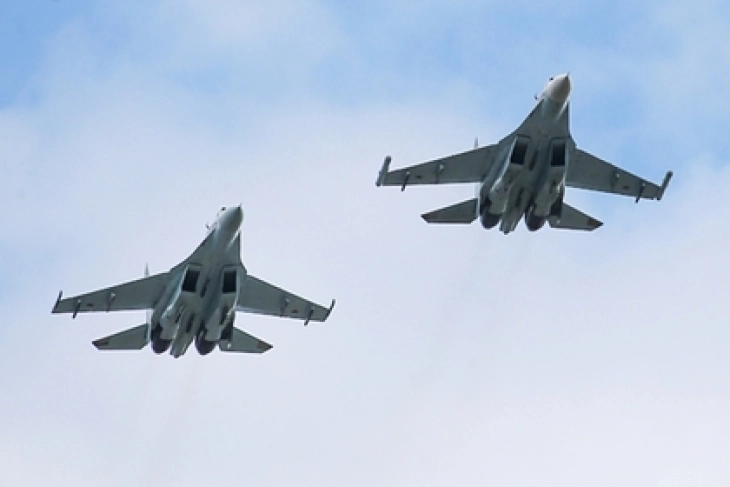US military strikes more than 85 targets in Syria and Iraq
- The US military said on Friday it has attacked more than 85 targets in Syria and Iraq, in response to the deadly attack by pro-Iranian militias that killed three US soldiers in Jordan.

Washington, 3 February 2024 (dpa/MIA) - The US military said on Friday it has attacked more than 85 targets in Syria and Iraq, in response to the deadly attack by pro-Iranian militias that killed three US soldiers in Jordan.
The Syrian Observatory for human Rights, a group which has been documenting violence in Syria since 2011, said in a statement, "American warplanes carried out rounds of air strikes on sites along a length of about 130 kilometres from the city of Deir el-Zour all the way to the Syrian-Iraqi border."
The group said that at least 18 pro-Iranian militia members had been killed in the strikes, which targeted 26 sites including weapons depots for the Iranian militias.
The US military's regional command CENTCOM confirmed the strikes on the social media platform X, formerly Twitter.
"The facilities that were struck included command and control operations centers, intelligence centers, rockets, and missiles, and unmanned aerial vehicle storages, and logistics and munition supply chain facilities of militia groups," the post said.
In a statement received by Iraqi Al-Sumaria television on Saturday A spokesman for the Commander-in-Chief of the Iraqi Armed Forces said that the American strikes on the cities of Al-Qaim and the Iraqi border areas "constitute a violation of Iraqi sovereignty."
"The cities of Al-Qaim and the Iraqi border areas are being subjected to air strikes by United States aircraft, as these strikes come at a time when Iraq is striving to ensure the stability of the region," the statement said.
He added that the strikes threatened to "drag Iraq and the region into unforeseen consequences, and its consequences will be dire for security and stability in Iraq and the region."
On January 28, three US soldiers were killed in a drone attack by pro-Iranian militias in Jordan near the Syrian border.
Numerous other soldiers were injured. US President Joe Biden blamed "radical Iran-backed militant groups operating in Syria and Iraq" for the attack and threatened to retaliate.
On Wednesday, the US government officially attributed the attack to a group called the Islamic Resistance in Iraq, which had previously claimed responsibility for the attack.
This is an umbrella group for pro-Iranian militias in Iraq, which have been operating together under this general name since the attacks by militants from the Palestinian organization Hamas and other extremist groups in Israel on October 7.
The group includes Kataib Hezbollah, which is backed by Iran. It is one of the strongest militias in Iraq and is demanding the withdrawal of US troops from the country.
North-east Jordan, where the deadly attack involving the US soldiers took place, borders both Syria and Iraq.
Since the start of the Gaza war between Israel and Palestinian militant group Hamas in October, pro-Iranian militias have carried out almost daily attacks on US military bases in Iraq and Syria. The US government responded with air strikes in both countries.
In addition, the Yemeni Houthis - in solidarity with Hamas - repeatedly attack freighters in the Red Sea. In response, the US and the UK, with the support of allies, carried out military strikes against the Iranian-backed Houthi militia in Yemen.
The US air strikes have not yet deterred the militias from further attacks. Concerns about an escalation are growing.
For US President Biden, the action against the militias is a balancing act. On the one hand, he wants to prevent his country from being dragged into a regional war in the Middle East. On the other hand, he wants to show strength and bring an end to the attacks.
At the same time, he is under pressure at home - some Republicans are calling for more aggressive countermeasures to the attacks against the US military.







